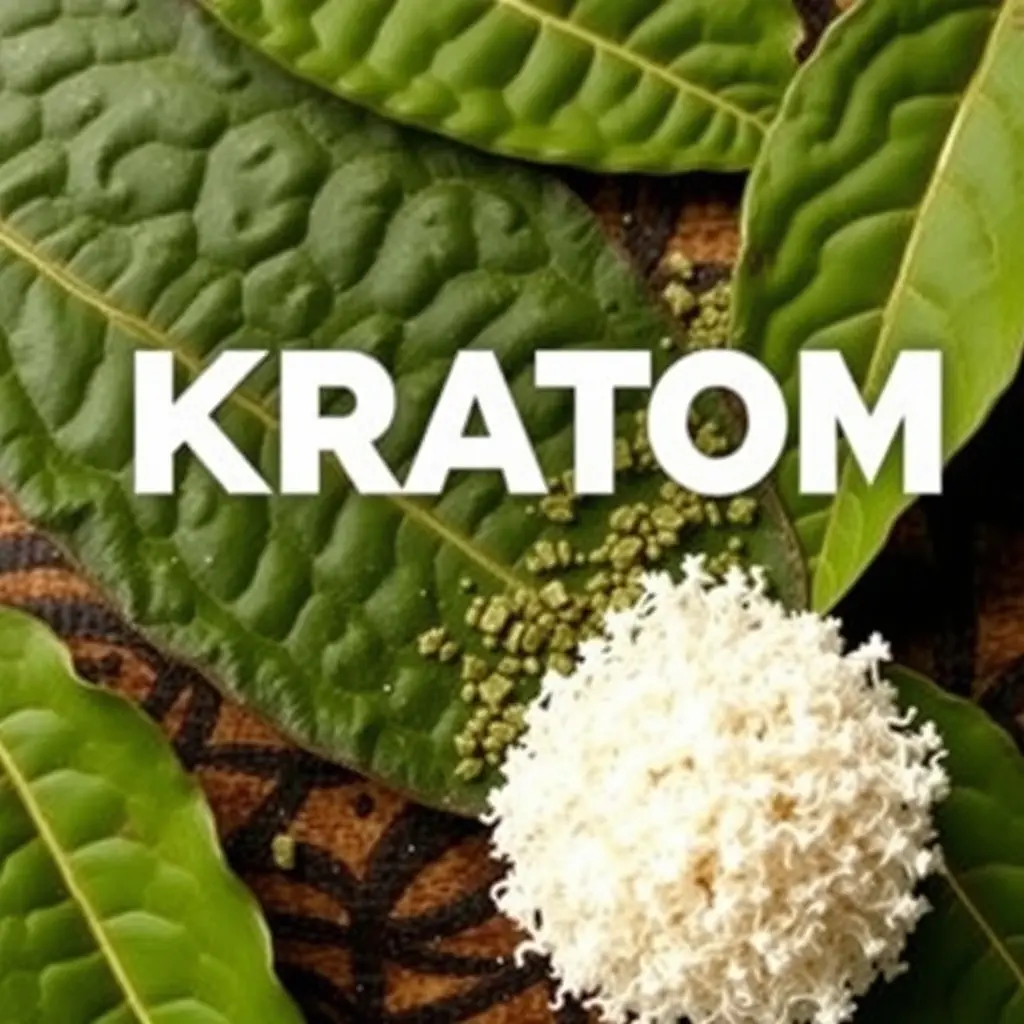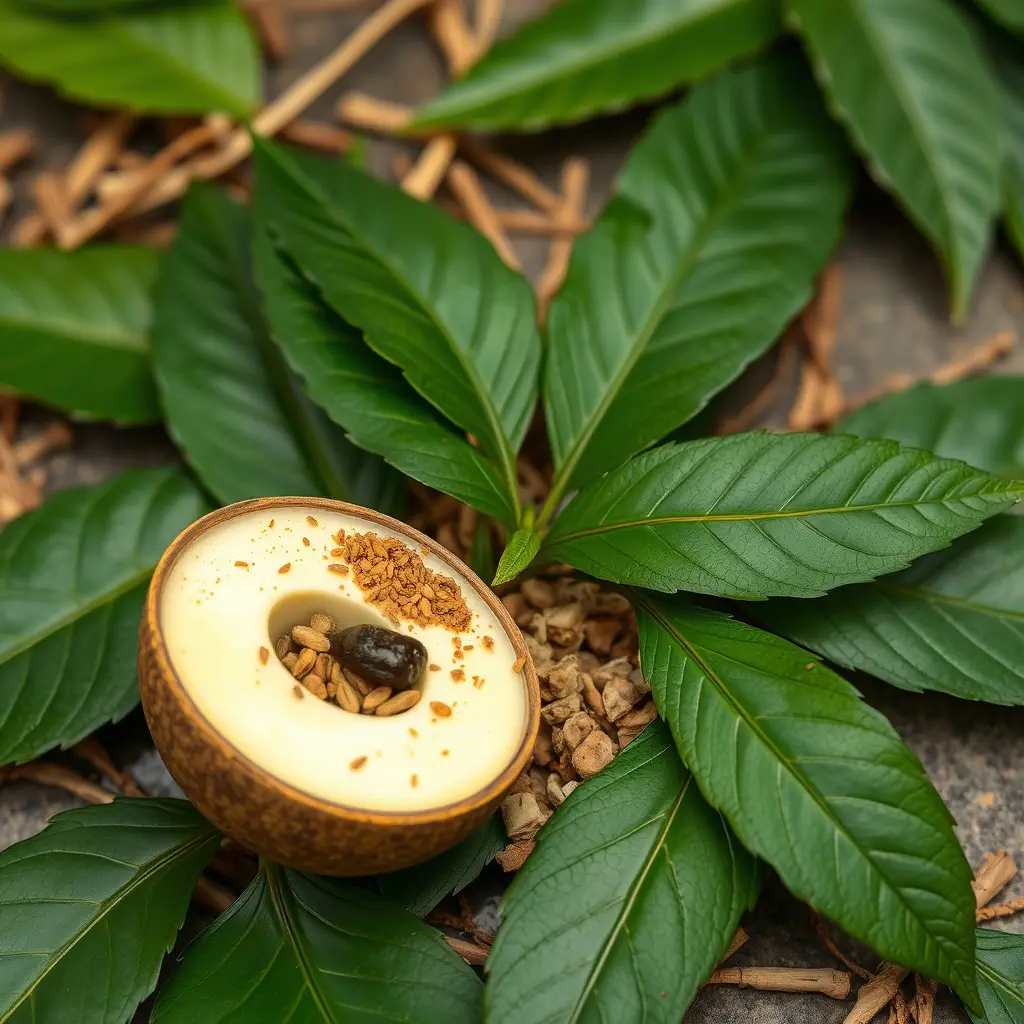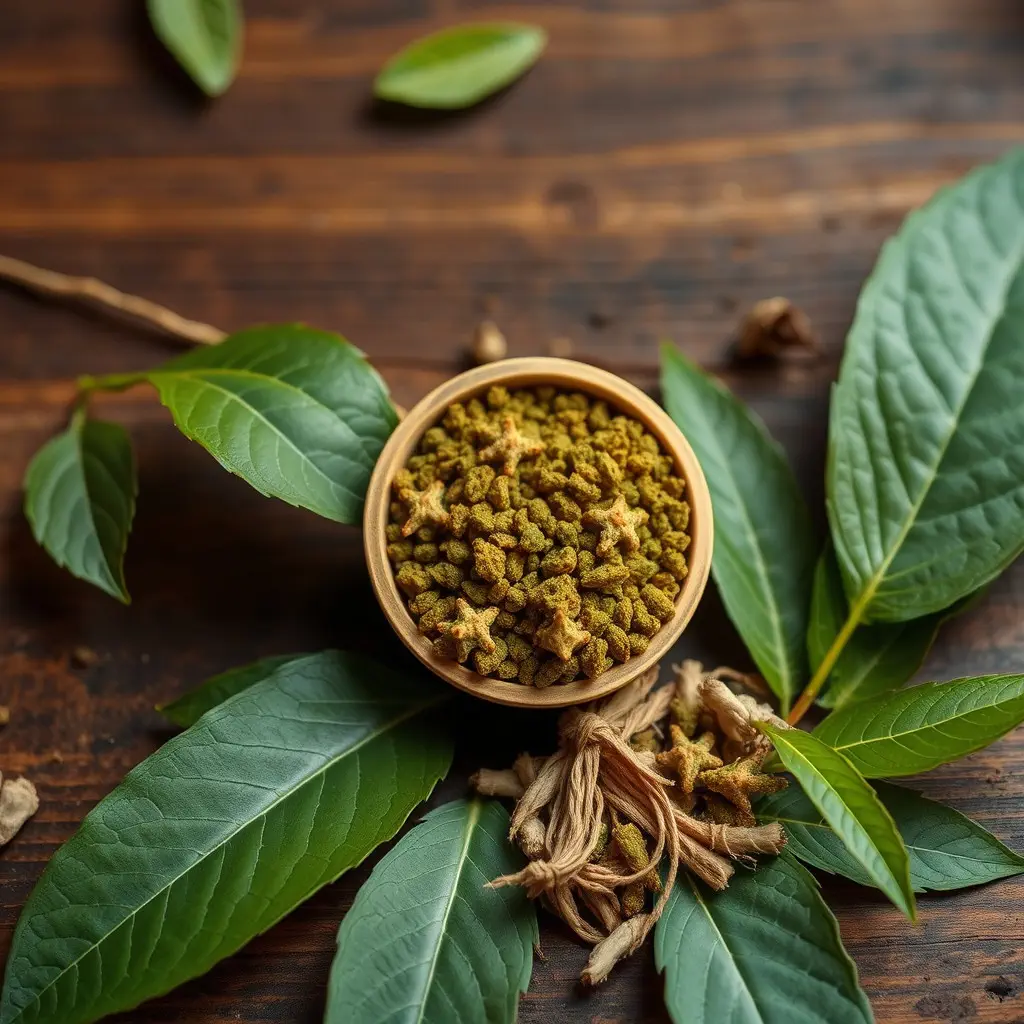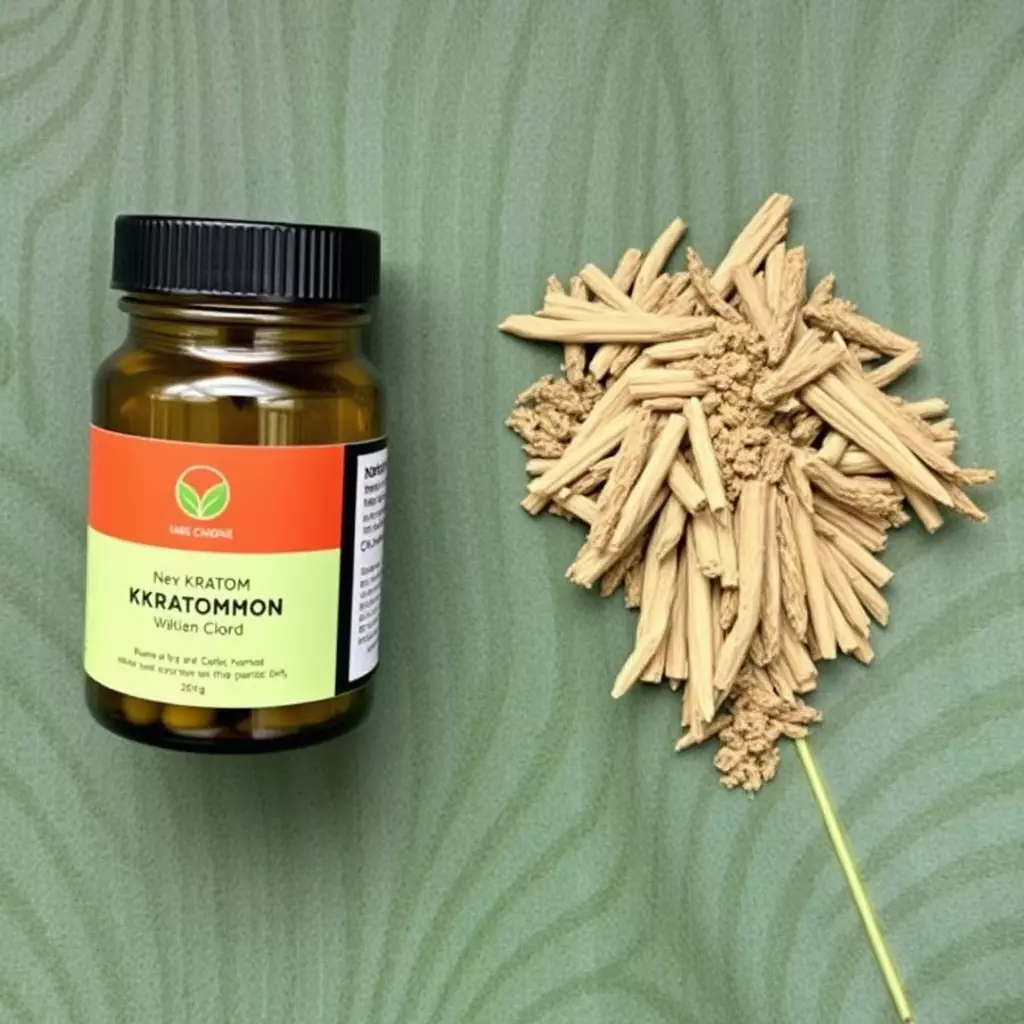Kratom, a plant from Southeast Asia, is gaining attention for its potential benefits in promoting mental clarity, focus enhancement, and stress relief. Its active alkaloids, mitragynine and 7-hydroxymitragynine, interact with opioid receptors to provide a balance of energy and tranquility that can reduce stress levels. Users often report an improved mood and better cognitive performance post-consumption, which is beneficial for managing stress-induced mental fog and distractions. While kratom serves as a natural alternative to conventional medications for stress relief, it's important to select the right strain and dosage to avoid drowsiness and maximize its benefits. Users should approach kratom with caution, seek medical advice before use, especially considering personal health profiles and potential interactions with other substances or conditions, and be aware of its legal status in their region. Stress relief with kratom is a promising avenue for individuals seeking holistic methods to enhance mental performance while managing stress, but it must be done responsibly and under appropriate guidance.
Discover the transformative potential of kratom in elevating mental clarity and focus. This article delves into how kratom can serve as a powerful ally for stress relief, offering insights into its effects on mental acuity and concentration. As we explore its role in enhancing cognitive function, learn practical tips on integrating kratom into your daily routine to optimize your mental performance. Join us to unveil the secrets behind kratom’s benefits for a sharper, clearer mind, all without the jargon of traditional health pieces.
- Unlocking Clarity and Focus: The Role of Kratom in Stress Relief
- Understanding Kratom's Effects on Mental Acuity and Concentration
- Integrating Kratom into Your Routine for Enhanced Mental Performance
Unlocking Clarity and Focus: The Role of Kratom in Stress Relief

Kratom, a plant native to Southeast Asia, has garnered attention for its potential role in stress relief and the subsequent enhancement of mental clarity and focus. The active compounds found in kratom leaves, known as mitragynine and 7-hydroxymitragynine, interact with the body’s opioid receptors, providing a balance between energy and calmness. This interaction can lead to a reduction in stress levels, allowing individuals to navigate their daily tasks with heightened focus and clarity. Users often report a sense of well-being and improved cognitive function after consuming kratom, which can be particularly beneficial for those facing mental fog or distractibility due to stress.
Incorporating kratom into a stress relief regimen may offer a natural alternative to traditional pharmaceuticals. It is crucial for individuals to approach the use of kratom with caution, as dosage and strain selection play significant roles in its effects. The right dose can alleviate stress without inducing sedation, fostering an environment conducive to mental clarity and sustained attention. However, it is important to consult with a healthcare provider before integrating kratom into any health protocol, given individual differences in response and potential interactions with other substances or conditions. Stress relief with kratom can be a promising avenue for those seeking natural means to enhance their focus and clarity of mind, provided it is used responsibly and under professional guidance when necessary.
Understanding Kratom's Effects on Mental Acuity and Concentration

Kratom, a tropical evergreen tree native to Southeast Asia, has garnered attention for its potential impact on mental acuity and concentration. The leaves of kratom contain alkaloids that interact with the brain’s receptors, which may enhance cognitive functions. When individuals consume kratom, they often report feelings of heightened focus and improved mental clarity. These effects are particularly notable with strains rich in mitragynine and 7-hydroxymitragynine, the primary alkaloids responsible for kratom’s psychoactive properties.
The influence of kratom on cognitive performance is multifaceted. For some, it serves as a natural stress relief aid, allowing for better concentration by alleviating anxious thoughts that may otherwise distract from mental tasks. The analgesic effects of kratom can also contribute to this sense of clarity by reducing physical discomfort that might otherwise intrude on one’s ability to concentrate. Additionally, users often find that kratom helps in maintaining a state of sustained attention and mental endurance during periods of prolonged work or study. However, it is important for individuals to approach the use of kratom with caution, as the effects can vary widely between individuals and may be influenced by factors such as dosage, strain, and personal tolerance. Prospective users should consider consulting with healthcare professionals before incorporating kratom into their routine, especially if they have underlying health conditions or are taking other medications.
Integrating Kratom into Your Routine for Enhanced Mental Performance

Kratom, a plant native to Southeast Asia, has been traditionally used for its potential cognitive-enhancing properties and stress relief effects. In recent years, individuals have begun integrating kratom into their daily routines to support mental clarity and focus. The active compounds found in kratom leaves, known as alkaloids, such as mitragynine and 7-hydroxymitragynine, interact with the brain’s receptors, which may help improve attention and reduce distractibility. Users often report that kratom helps them maintain a state of focused concentration, enabling them to perform tasks more effectively, particularly those requiring sustained attention or complex problem-solving.
It is important to approach the integration of kratom into one’s routine with caution, as dosage and strain selection play critical roles in its effects. For stress relief with kratom, it is generally recommended to start with a lower dose to assess individual sensitivity. Additionally, certain strains like Maeng Da or White Vein are often favored for their stimulating properties that can aid mental performance without the sedative side effects associated with higher doses. Users should also be mindful of the legal status of kratom in their jurisdiction and consult with a healthcare provider before making any changes to their supplement regimen, especially if they are taking other medications or have pre-existing health conditions. Integrating kratom responsibly can be a valuable addition for individuals seeking natural means to enhance mental clarity and focus while managing stress levels.
In conclusion, the incorporation of kratom into one’s routine can significantly contribute to stress relief and enhance mental clarity and focus. The unique alkaloids found in kratom leaves have been shown to modulate mood and cognition, potentially sharpening mental acuity and concentration. As with any supplement, it is crucial to approach its use responsibly and in accordance with professional guidance. By understanding the nuances of kratom’s effects and integrating it thoughtfully into daily life, individuals may experience notable improvements in their cognitive performance. Stress relief with kratom can thus be a valuable tool for those seeking to optimize their mental faculties and navigate the demands of modern life more effectively.






